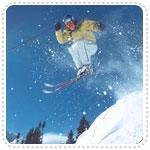CDC page helps Rehab Therapy professionals treat sports-related injuries

When it comes to helping Rehab Therapy professionals treat sports-related injuries, The CDC is stepping up to the plate
Kids play hard. Exercise mixed with outdoor activity is a wonderful thing, but sports related injuries do occur, and with current admissions to U.S. emergency rooms hovering at 135,000 per year, the Center for Disease Control and Prevention is taking notice. In fact, the CDC just launched a sports injury page on their website, where medical staff, i.e. physical and occupational therapists, as well as coaches, teammates and patients can find printable palm cards and other resources that outline the symptoms of a probable Traumatic Brain Injury (TBI).
Dealing with the repercussions (of a concussion) can often be what a rehab team is all about. Rehabilitation therapy job professionals get the patient back on track by ensuring the skills necessary to perform ADLs (activities of daily living) are relearned.
If you thrive in PT and OT jobs, you work tirelessly to improve every aspect of your patient’s physical function.
You work toward an ultimate goal of increasing the patient’s physical endurance and, because every patient is an individual and as such, unique, your treatment plans are perfectly structured to meet specific injuries and needs. But before treatment can begin, there has to be a diagnosis, and the CDC is only enforcing what you probably already know.
What signs can you observe in a patient who may have only just sustained a TBI injury? The following is a short list of symptoms:
- Appears dazed or stunned
- Is confused over a simple task
- Forgets sports plays
- Is unsure of game, score, opponent
- Moves clumsily
- Answers questions slowly
- Loses consciousness (even briefly)
- Shows behavior or personality changes
- Can’t recall events PRIOR to hit or fall (retrograde amnesia)
- Can’t recall events AFTER hit or fall (anterograde amnesia)
The next list is what the patient might describe in the event of his or her TBI injury:
- Headache or “pressure” in head
- Nausea
- Balance problems or dizziness
- Double or fuzzy vision
- Sensitivity to light and/or noise
- Feeling sluggish or slowed down
- Feeling foggy or groggy
- Does not “feel right”
No matter where you practice rehabilitation therapy, you are a critical part in patient recovery; that being said, we would still like to leave you with a bookmark worthy website. US News & World Report has a current listing of the best rehab hospitals in the nation. Which jobs at American Traveler Allied put you in the top 3? Check out Seattle therapist jobs and see if you can get close to the healing action at the University of Washington Medical Center—but keep this obvious and happy truth in mind: you can make a difference anywhere.